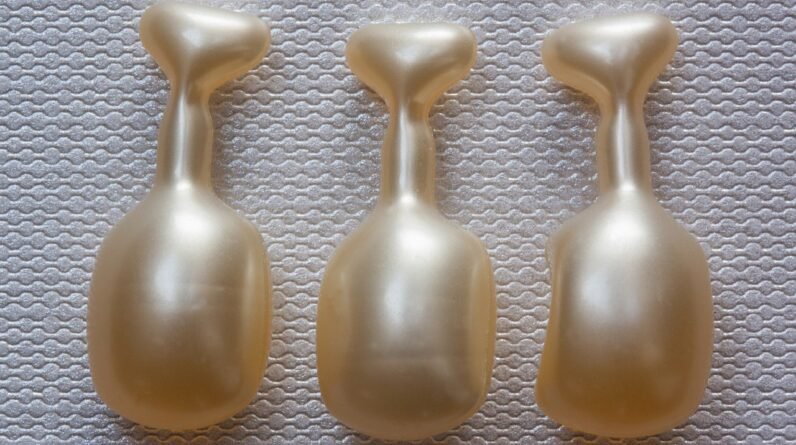
Have you ever wondered what the secret is to staying youthful and radiant as the years go by? Well, look no further because we have the answer for you. In this article, we will reveal the number one supplement for anti-aging that has been taking the health and beauty industry by storm. With the desire to retain a youthful appearance growing more popular than ever, people are searching for the best anti-aging supplements that can help turn back the hands of time. So, get ready to discover the incredible benefits of this remarkable supplement that can help defy the aging process and leave you looking and feeling fantastic.

This image is property of pixabay.com.
Understanding Anti-Aging
As we age, it’s natural to start noticing changes in our bodies – both internally and externally. The concept of anti-aging has gained popularity in recent years, as more and more people are seeking ways to maintain a youthful appearance and optimal health as they grow older. In this article, we will dive into the science behind aging, explore the factors that contribute to the process, and discuss the role of supplements in supporting anti-aging efforts.
The Science Behind Aging
Aging is a complex biological process that involves a myriad of factors, including genetic predisposition, lifestyle choices, and environmental influences. At the cellular level, a decline in essential functions occurs over time, leading to the visible signs of aging. One of the key players in this process is oxidative stress, which occurs when there is an imbalance between harmful free radicals and the body’s ability to neutralize them with antioxidants.
Factors Contributing to Aging
While aging is a natural part of life, certain factors can accelerate the process. One major contributor is prolonged exposure to ultraviolet (UV) radiation from the sun, which can damage the skin’s collagen and elastin fibers, leading to wrinkles and sagging. Poor nutrition, smoking, chronic stress, and lack of exercise can also contribute to premature aging. Understanding and addressing these factors can help slow down the aging process and promote healthier aging.
The Role of Supplements
Supplements can play a crucial role in supporting anti-aging efforts by providing essential nutrients that may be lacking in our diets. While it’s important to note that supplements should never replace a balanced diet, they can complement it and offer additional support to promote healthier aging. Let’s take a closer look at some key anti-aging nutrients and their benefits.
Key Anti-Aging Nutrients
Vitamin C
Vitamin C is a powerful antioxidant that plays a crucial role in collagen synthesis, the protein responsible for maintaining the skin’s structure and elasticity. As we age, collagen production decreases, leading to the formation of wrinkles and fine lines. Vitamin C helps counteract this by promoting collagen synthesis and protecting the skin from free radical damage. Additionally, it aids in the repair of damaged tissues and supports the immune system, which tends to weaken as we age.
Vitamin E
Vitamin E is another potent antioxidant that protects the skin from damage caused by free radicals and UV radiation. It has been shown to have anti-inflammatory properties and can reduce the appearance of age spots and wrinkles. Vitamin E also helps with skin hydration, keeping it moisturized and supple. Additionally, this vitamin supports overall cardiovascular health and may help prevent age-related cognitive decline.
Omega-3 Fatty Acids
Omega-3 fatty acids, such as EPA and DHA, are essential fats that can have remarkable benefits for anti-aging. These healthy fats support heart health, reduce inflammation in the body, and promote brain function. When it comes to the skin, omega-3 fatty acids help maintain its moisture barrier, keeping it hydrated and preventing dryness. They have also been linked to a reduction in inflammation, which can contribute to aging and various chronic conditions.
Resveratrol
Resveratrol is a naturally occurring compound found in certain foods, such as grapes, berries, and red wine. It has gained attention in recent years for its potential anti-aging effects. Resveratrol is believed to activate a longevity enzyme called sirtuin, which can help protect the body against age-related diseases. Additionally, it has been shown to have antioxidant and anti-inflammatory properties, which may help reduce the visible signs of aging and support overall health.
Coenzyme Q10
Coenzyme Q10, also known as CoQ10, is a vital nutrient that plays a crucial role in cellular energy production. As we age, the production of CoQ10 decreases, leading to a decline in energy levels. This nutrient is particularly beneficial for the skin, as it helps protect against oxidative stress, supports collagen production, and improves skin hydration. CoQ10 also has cardiovascular benefits and can help maintain a healthy heart.

This image is property of pixabay.com.
The Powerful Antioxidant: Vitamin C
Benefits of Vitamin C for Anti-Aging
Vitamin C offers a multitude of benefits when it comes to anti-aging. Firstly, its powerful antioxidant properties protect the skin against free radicals, which can cause premature aging. Vitamin C also aids in collagen production, helping to maintain the skin’s elasticity and reduce the appearance of wrinkles and fine lines. Additionally, it promotes wound healing and supports a healthy immune system, which can be compromised with age.
Recommended Dosage and Sources
The recommended daily intake of vitamin C for adults is around 75-90 mg. However, when it comes to anti-aging benefits, higher doses may be more beneficial. Many experts recommend a daily intake of 500-1,000 mg for optimal antioxidant protection and collagen synthesis. Good food sources of vitamin C include citrus fruits, berries, kiwi, bell peppers, and leafy greens. For those who struggle to consume enough vitamin C through diet alone, supplementation can be a convenient option.
Considerations and Precautions
While vitamin C is generally safe, it’s important to keep a few things in mind. High doses of vitamin C may cause digestive upset, such as diarrhea or stomach cramps, in some individuals. It’s also important to note that vitamin C is water-soluble, meaning it is not stored in the body, so regular intake is necessary. If you have any underlying health conditions or are taking medications, it’s always best to consult with a healthcare professional before starting any new supplement regimen.
Vitamin E: Essential for Youthful Skin
Benefits of Vitamin E for Anti-Aging
Vitamin E is a powerful antioxidant that helps protect the skin from free radicals and oxidative stress. It has anti-inflammatory properties, which can help reduce redness and inflammation associated with aging. Vitamin E also supports the skin’s moisture barrier, preventing dryness and promoting hydration. Additionally, this nutrient has been shown to enhance collagen production and improve the overall texture and tone of the skin.
Recommended Dosage and Sources
The recommended daily intake of vitamin E for adults is around 15 mg. However, for anti-aging benefits, higher doses may be more effective. Many experts recommend a daily intake of 200-400 IU (international units). Good food sources of vitamin E include nuts, seeds, vegetable oils (such as wheat germ oil and sunflower oil), spinach, and avocados. Vitamin E supplements are also widely available and can be used to complement dietary intake.
Considerations and Precautions
Vitamin E is generally well-tolerated, but it’s important to be mindful of the dosage. High doses of vitamin E (>400 IU) can interfere with blood clotting and may not provide additional benefits. As with any supplement, it’s advisable to consult with a healthcare professional if you have any underlying health conditions or are taking medications.

This image is property of pixabay.com.
Omega-3 Fatty Acids: Supporting Health Inside Out
Benefits of Omega-3 Fatty Acids for Anti-Aging
Omega-3 fatty acids offer a wide range of health benefits, including anti-aging properties. These healthy fats help reduce inflammation in the body, which can contribute to aging and age-related diseases. Omega-3 fatty acids also support heart health, improve brain function, and promote healthy skin. They help maintain the skin’s moisture barrier, preventing dryness and enhancing its overall appearance.
Recommended Dosage and Sources
The recommended daily intake of omega-3 fatty acids varies depending on age and sex. For adults, a combined intake of 250-500 mg of EPA and DHA is generally recommended. Good food sources of omega-3 fatty acids include fatty fish (such as salmon, sardines, and mackerel), flaxseeds, chia seeds, and walnuts. Omega-3 supplements, such as fish oil capsules, are available for those who do not consume enough through diet alone.
Considerations and Precautions
While omega-3 fatty acids are generally safe for most people, they can have blood-thinning effects. If you are on blood-thinning medications or have a bleeding disorder, it’s important to speak with a healthcare professional before starting omega-3 supplementation. It’s also worth noting that fish oil supplements may have a fishy aftertaste or cause mild digestive discomfort in some individuals.
Resveratrol: A Promising Anti-Aging Compound
Benefits of Resveratrol for Anti-Aging
Resveratrol has gained attention in the world of anti-aging for its potential health benefits. This compound has been shown to activate a longevity enzyme called sirtuin, which can help protect against age-related diseases. Resveratrol also acts as a potent antioxidant and anti-inflammatory agent, helping to reduce oxidative stress and inflammation in the body. It may promote cardiovascular health, support brain function, and improve skin elasticity.
Recommended Dosage and Sources
The optimal dosage of resveratrol is still under debate, and more research is needed to determine the exact amount required for anti-aging benefits. However, studies suggest that a dosage of 100-250 mg per day may be effective. Resveratrol is found in grapes, berries, peanuts, and red wine. For those who prefer a supplement form, resveratrol capsules are available.
Considerations and Precautions
While resveratrol is generally safe, it’s important to consult with a healthcare professional before starting supplementation, especially if you have underlying health conditions or are taking medications. It’s also worth noting that excessive alcohol consumption is detrimental to health and can counteract the benefits of resveratrol found in red wine.

Coenzyme Q10: Energizing Your Cells
Benefits of Coenzyme Q10 for Anti-Aging
Coenzyme Q10, or CoQ10, is an essential nutrient that plays a crucial role in cellular energy production. As we age, the production of CoQ10 declines, leading to decreased energy levels. CoQ10 is particularly beneficial for the skin, as it helps protect against oxidative stress, supports collagen production, and improves skin hydration. Additionally, this nutrient has been associated with cardiovascular benefits and may help maintain a healthy heart.
Recommended Dosage and Sources
The recommended daily intake of CoQ10 varies depending on age and overall health. For antioxidant support and anti-aging benefits, a dosage of 100-200 mg per day is commonly recommended. CoQ10 is naturally found in organ meats, fish, and nuts. However, it can be challenging to obtain adequate amounts through diet alone, so supplementation may be necessary for some individuals.
Considerations and Precautions
CoQ10 is generally well-tolerated, but it’s important to note that it can interact with certain medications, such as blood thinners, blood pressure medications, and cholesterol-lowering drugs. If you are taking any medications or have underlying health conditions, it’s important to seek professional medical advice before starting CoQ10 supplementation.
Collagen: Rejuvenating Skin and Joints
Benefits of Collagen for Anti-Aging
Collagen is a protein that plays a vital role in maintaining the skin’s structure and elasticity. As we age, collagen production decreases, leading to the formation of wrinkles and sagging skin. Supplementing with collagen can help replenish the body’s collagen levels, improving skin elasticity, and reducing the visible signs of aging. Collagen also supports joint health, promoting flexibility and reducing joint pain.
Recommended Dosage and Sources
The recommended dosage of collagen varies depending on the specific product and formulation. It’s important to follow the instructions provided by the manufacturer or consult with a healthcare professional for personalized recommendations. Collagen supplements are available in various forms, including powders, capsules, and drinks. They can be sourced from animal collagen, such as bovine or marine collagen, or plant-based alternatives.
Considerations and Precautions
Collagen supplements are generally safe for most individuals, but those with underlying health conditions or allergies should exercise caution. It’s also worth noting that collagen supplements may not be suitable for vegetarians or vegans, as they are typically derived from animal sources. As with any supplement, it’s best to seek professional guidance if you have any concerns or specific dietary requirements.

Hyaluronic Acid: Hydrating and Plumping
Benefits of Hyaluronic Acid for Anti-Aging
Hyaluronic acid is a natural substance found in the skin that plays a crucial role in maintaining moisture and plumpness. As we age, hyaluronic acid levels decrease, leading to dryness and the appearance of fine lines and wrinkles. Supplementing with hyaluronic acid can help restore moisture, improve skin hydration, and enhance the skin’s overall appearance. It also supports joint health by lubricating and cushioning the joints.
Recommended Dosage and Sources
The recommended dosage of hyaluronic acid varies depending on the specific product and formulation. It’s important to follow the instructions provided by the manufacturer or consult with a healthcare professional for personalized recommendations. Hyaluronic acid supplements are available in capsules, tablets, and serums. They can also be found in certain foods, such as bone broth and soy-based products.
Considerations and Precautions
Hyaluronic acid supplements are generally safe for most individuals, but it’s important to be cautious if you have a history of allergic reactions or skin sensitivities. As with any supplement, it’s advisable to consult with a healthcare professional before starting hyaluronic acid supplementation, especially if you have underlying health conditions or are taking medications.
Conclusion
In the quest for maintaining a youthful appearance and promoting optimal health as we age, it’s important to consider the role of supplements. While they should never replace a balanced diet and healthy lifestyle, supplements can provide additional support and essential nutrients that may be lacking in our diets. Choosing the right supplements for anti-aging is crucial, and it’s advisable to consult with a healthcare professional to determine the best options for your unique needs.
Combining different anti-aging nutrients can also be beneficial, as they often work synergistically to support overall well-being. For example, taking a combination of vitamin C, vitamin E, omega-3 fatty acids, resveratrol, and CoQ10 can provide comprehensive antioxidant and anti-aging support. However, it’s essential to ensure proper dosages and consider any potential interactions with medications or underlying health conditions.
Lastly, consulting a healthcare professional is always recommended before starting any new supplement regimen, especially if you have specific health concerns or are taking medications. They can provide personalized guidance based on your individual needs and help ensure that the supplements you choose are safe and effective. Remember, maintaining a proactive and informed approach to anti-aging can contribute to a healthier, more vibrant future.







